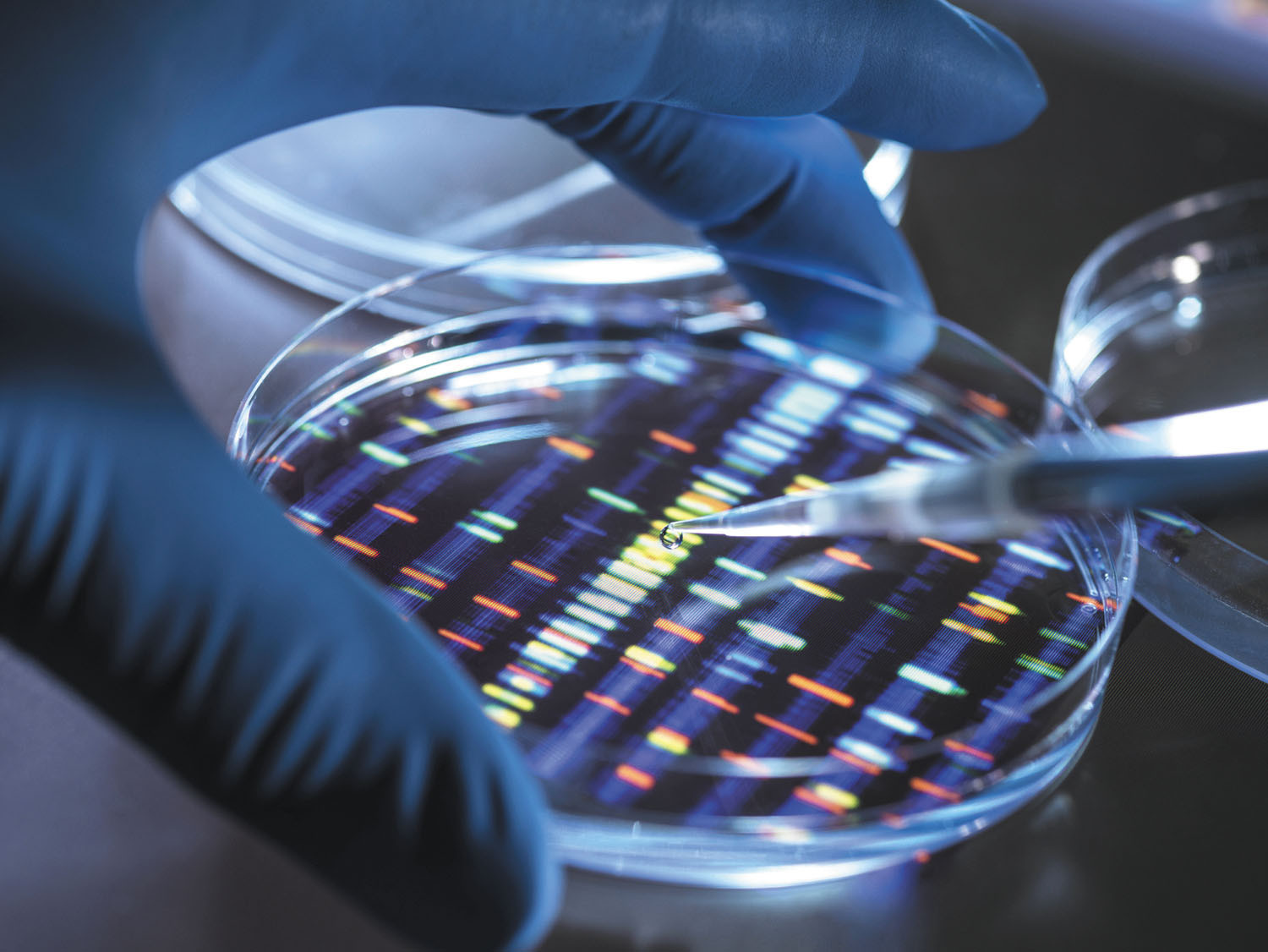
5 timeless habits for better health

What are the symptoms of prostate cancer?

Is your breakfast cereal healthy?

When pain signals an emergency: Symptoms you should never ignore

Does exercise give you energy?

Acupuncture for pain relief: How it works and what to expect

How to avoid jet lag: Tips for staying alert when you travel

Biofeedback therapy: How it works and how it can help relieve pain

Best vitamins and minerals for energy

Should you take probiotics with antibiotics?
Genes Archive
Articles
Can we fix Alzheimer's genes?
Some doctors feel it's unlikely that editing people's genes will help prevent them from getting Alzheimer's disease. It's not just because attempts to edit genes inside the cells of living animals are in their infancy. It's also because most cases of Alzheimer's disease occur in older adults, and those cases do not appear to be caused just by a few defective genes. Lifestyle—particularly exercise, diet, and the amount of high-quality sleep—affects the risk of developing Alzheimer's at least as much as genes.
Genetic profiling for heart disease: An update
A polygenic risk score for heart disease is based on an analysis of more than three million common DNA variants and is expressed as a percentile. People can have zero, one, or two copies of any variant, each of which may either raise or lower the risk of coronary artery disease. Many of these variants occur in genes known to affect heart disease, such as those related to cholesterol, blood pressure, and blood clotting. Others aren't well understood and may provide targets for future research, potentially fueling new drug discovery efforts. For now, the potential benefits of this test are greatest for people under 50.
Exercise may counteract inherited risk for diabetes
Getting regular exercise can help fend off diabetes, even in people with a genetic propensity for the disease, according to a 2023 study.
Gene editing: A one-time fix for dangerously high cholesterol?
A gene editing technique that permanently shuts down a cholesterol-raising protein called PCSK9 is being tested in heart attack survivors with an inherited form of high cholesterol. The one-time infusion contains tiny particles that contain the editing tools, which travel through the blood to the liver and changes the cells that produce the protein. If early data show the treatment to be safe and effective, the therapy potentially could be used in people who have "garden variety" high cholesterol.
A new calculation tool may help predict men's prostate cancer risk
A new calculation tool that focuses on family history and specific genetic variants may help identify men at high risk for prostate cancer and help determine who would benefit most from routine screening.
Should I get genetic testing for breast cancer?
Women should consider genetic testing for breast cancer if they have a personal or family history of breast or ovarian cancer, especially diagnosed at age 50 or younger; family history of BRCA1 or BRCA2 gene mutations; or Ashkenazi Jewish heritage.
The latest on lipoprotein(a), an inherited cause of early heart disease
About 20% of people have high blood levels of lipoprotein(a)—Lp(a) for short—a fatty particle that's like the evil twin of the more familiar LDL ("bad") cholesterol. Elevated Lp(a) which can double or triple risk of a heart attack and raise stroke risk, and is linked to problems with the heart's aortic valve. With new treatments that can lower Lp(a) on the horizon, cardiologists are now testing more people for this biomarker, which is not included in standard cholesterol tests.
A lethal cancer's long reach
While ovarian cancer is not always inherited, family history is the top risk factor for the disease, which is diagnosed in 20,000 American women and kills 13,000 annually. Symptoms, such as bloating, pelvic pain, bowel or bladder habit changes, and unusual vaginal discharge or bleeding, are often vague and subtle until the disease is advanced, making it hard to detect and cure. No standard screening test is available for ovarian cancer. Women with symptoms can ask for a pelvic ultrasound. Women with a family history should seek genetic counseling and testing.
Debunking myths about heart disease
Many people have misconceptions about avoiding heart disease. One involves the use of over-the-counter fish oil capsules, which do not prevent heart disease in healthy people. Another relates to confusion about the ideal blood pressure targets in older adults. Some people are misinformed about the implications of a family history of heart disease, while others may be confused about the differences in heart attack symptoms between men and women.
Aiming for longevity
Genetics, lifestyle, and environmental factors contribute to reaching age 100. More than 100,000 people were 100 or older in 2019, triple the number in 1980. People reaching extreme old age tend to be nonsmokers, are not obese, and cope with stress effectively. Studies show that diets incorporating more fruits, vegetables, and whole grains may lower the odds of frailty and increase life span. Siblings and children of long-living people also are likelier to live longer than peers. Optimism is associated with higher odds of living beyond 90.

5 timeless habits for better health

What are the symptoms of prostate cancer?

Is your breakfast cereal healthy?

When pain signals an emergency: Symptoms you should never ignore

Does exercise give you energy?

Acupuncture for pain relief: How it works and what to expect

How to avoid jet lag: Tips for staying alert when you travel

Biofeedback therapy: How it works and how it can help relieve pain

Best vitamins and minerals for energy

Should you take probiotics with antibiotics?
Free Healthbeat Signup
Get the latest in health news delivered to your inbox!
Sign Up











